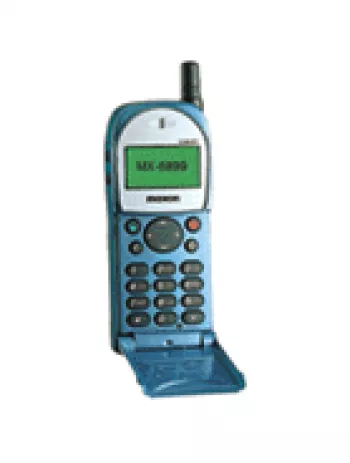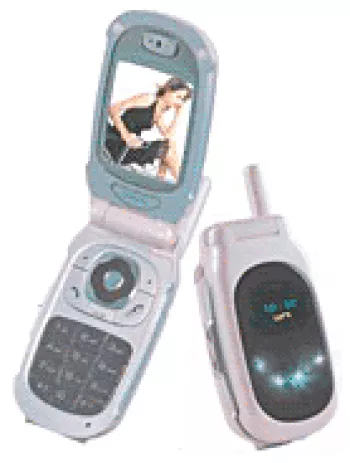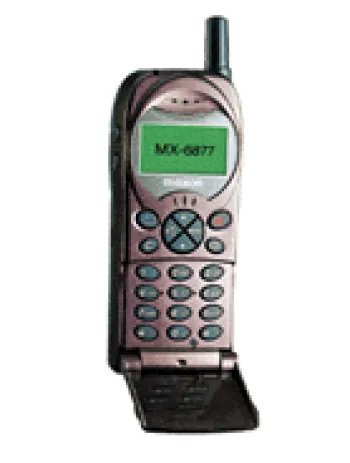
Overview of the Maxon MX-6899
The Maxon MX-6899 was a feature phone that hit the market in 2000 and was later discontinued. This device offers basic functionality, characteristic of many phones released during that time. It was known for its simplicity and reliability, catering primarily to those who needed a phone for calling and messaging without the distraction of additional features common in modern smartphones.
Network and Connectivity
The Maxon MX-6899 operates on GSM technology and supports GSM 900 2G bands. It lacks GPRS and EDGE support, aligning with its time's basic communication requirements. High-speed internet was not a focus, given the device's release during an era when mobile internet was in its nascent stages.
Design and Build
In terms of design, the Maxon MX-6899 measures 109 x 43 x 22 mm and weighs 130 g. The dimensions and weight reflect the typical build for phones from the early 2000s. It uses a Mini-SIM, which was standard before micro and nano SIMs became prevalent. Its robustness complements its utilitarian design, making it a durable choice for everyday use.
Display
The phone features a monochrome graphic display designed for basic readability rather than aesthetic appeal. Despite its limitations, the display satisfies the need for callers and texters, allowing users to view simple graphics and text spanning 4 x 12 characters.
Memory and Storage
The device does not include a card slot for expanded storage, as it is not designed for storing large amounts of data or applications. The phone's memory is limited, focusing instead on convenience with features like storing 20 dialed call records.
Audio and Alert Features
Given its era, the Maxon MX-6899 does not feature a loudspeaker or support for a 3.5mm jack. Instead, it utilizes vibration and monophonic ringtones for alerts, simplifying auditory notifications without excessive complexity.
Communication Capabilities
Without support for WLAN, Bluetooth, or positioning features, the Maxon MX-6899 focuses solely on essential communication functions. It also lacks radio connectivity and USB options, reinforcing its position as a fundamental communication device.
Features and Functionalities
The Maxon MX-6899 is equipped with basic sensors and primarily supports SMS messaging. It includes essential tools such as a clock and an alarm but does not support web browsing or Java applications. This simplicity is aligned with the needs of users at the time who prioritized connectivity over multimedia and entertainment.
Battery Life
The phone is powered by a removable NiMH battery with a capacity of 600 mAh. Users could expect a standby time of approximately 100 hours and a talk time of up to 4 hours. While modest by today's standards, these figures provided reasonable longevity for typical use in its time.
Color Variants
The Maxon MX-6899 was available in five colors, allowing users to select a model that suited their aesthetic preferences. This variety, while not offering customization through hardware or software, provided a degree of personalization in choosing the phone's outward appearance.
Legacy and Conclusion
The Maxon MX-6899 illustrates the evolution of mobile communication devices, reflecting a period when mobile phones served fundamentally as communication tools. Although discontinued, its emphasis on core functionality remains a reminder of the industry's roots, where reliability and utility took precedence over multimedia features.
In examining its place in the history of mobile phones, the Maxon MX-6899 stands as a notable entry that served its purpose efficiently, catering to an audience that sought straightforward communication capabilities. Its durability and design simplicity have made it an icon of its time, representing the no-frills functionality that defined the early years of mobile telephony.
Main Features of Maxon MX-6899
- Compact Design: Dimensions of 109 x 43 x 22 mm, making it lightweight and easy to carry.
- Monochrome Display: Simple monochrome graphic display suitable for basic usage.
- Durable Build: Offers a robust body design with a Mini-SIM slot.
- Basic Communication: Supports GSM 900 technology for basic communication.
- Long Battery Life: Removable NiMH 600 mAh battery with up to 100 hours of standby time and 4 hours of talk time.
- Vibration and Monophonic Ringtones: Provides basic alert functionalities.
- Essential Tools: Includes clock and alarm functions for daily needs.
- Five Color Options: Available in 5 different color options for personal preference.
Drawbacks of Maxon MX-6899
- No GPRS or EDGE support; lacks modern internet connectivity.
- Discontinued status, leading to limited support and availability.
- Monochrome graphic display with limited resolution and character visibility.
- Lacks expandable memory; no card slot available.
- No camera features present.
- No loudspeaker and 3.5mm audio jack, limiting audio output options.
- No modern connectivity options such as Bluetooth, WLAN, or USB.
- Lacks positioning services and FM Radio functionality.
- Limited messaging capability restricted to SMS only.
- Short battery life with only 100 hours standby and 4 hours talk time.
- No Java support for running additional applications or games.
- Heavier design at 130g for a basic device.
View Also
More Phones
All Rights Reserved +14266 Phones © Mobilawy 2025
























